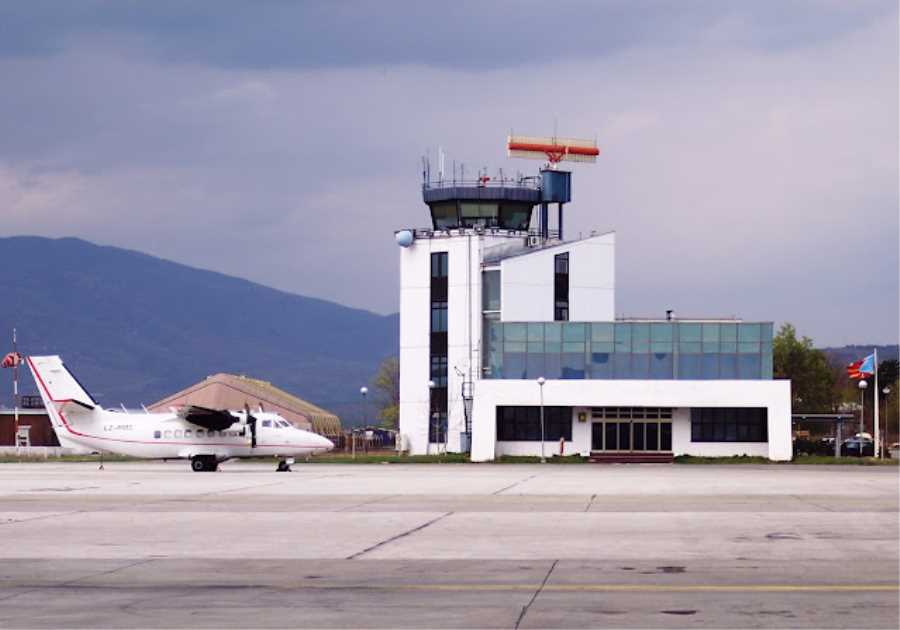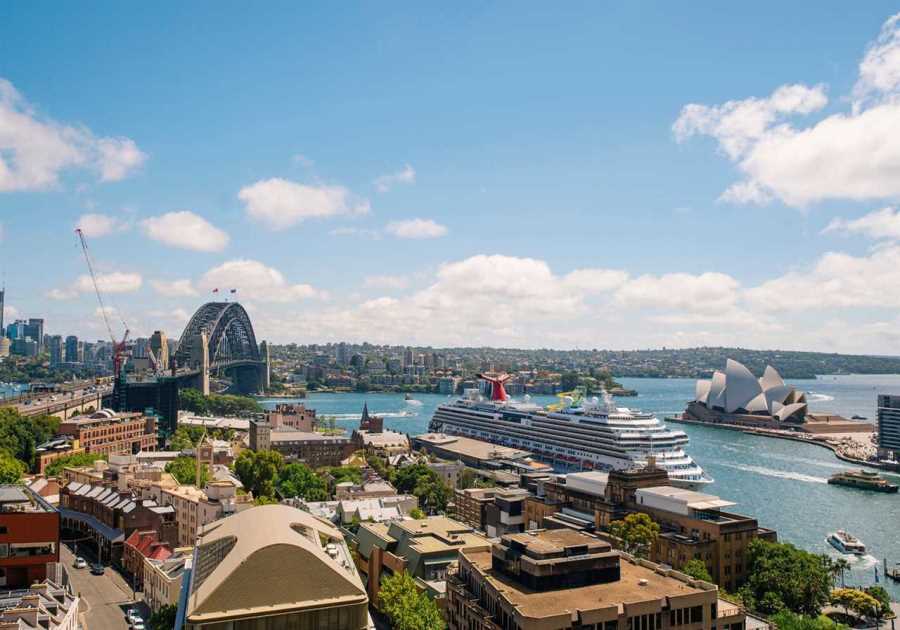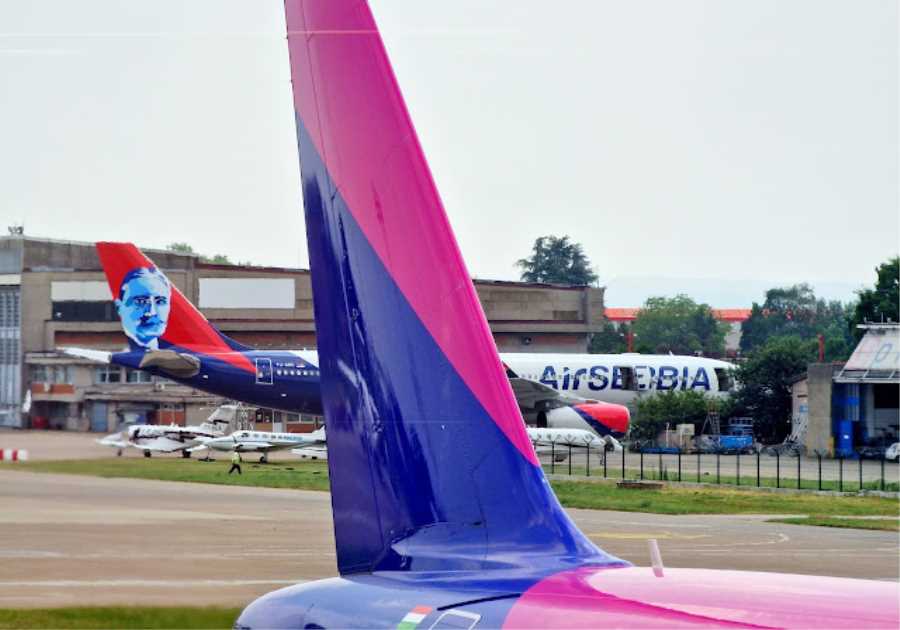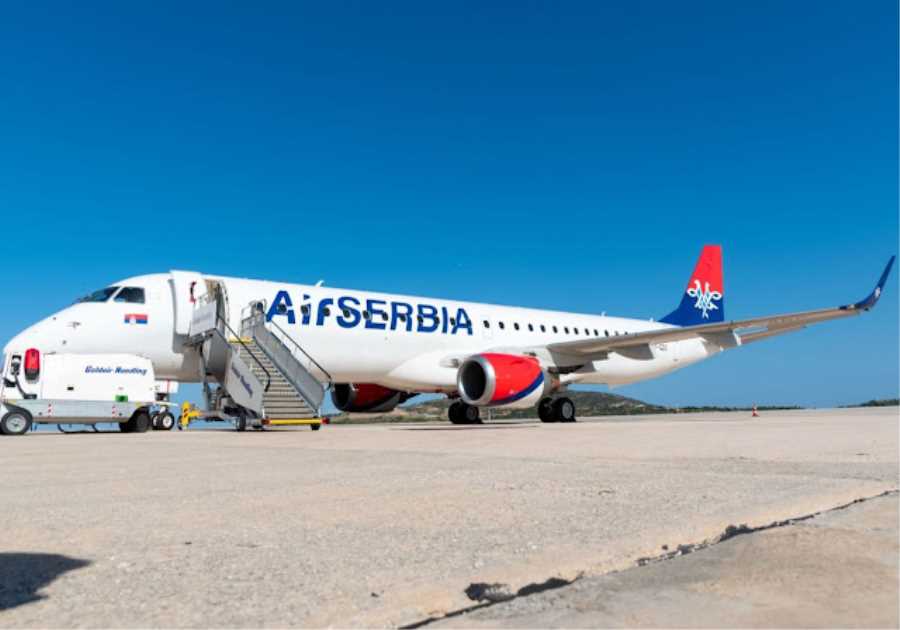HOSTED BY: https://1airtravel.com
TODAY'S READ
Brisbane Airport passengers will soon begin and end their journey at one of the planet’s most sustainable airports.
Brisbane Airport Corporation has today accelerated its net zero targets by 25 years and has committed to achieving net zero for its direct emissions by 2025. The commitment is contained in its new sustainable strategy, which details the achievements of the airport, and its aims for a sustainable future.
Brisbane’s green goals
Brisbane Airport Corporation calculates its emissions by categorising them into scope 1 and 2, which includes emissions from electricity and fuel consumed by BAC.
To achieve net zero (scope 1 and 2) by 2025, BAC has committed to transition to 100% renewable energy, purchase all-electric fleet vehicles and develop an onsite carbon removal project within its Biodiversity Zone.
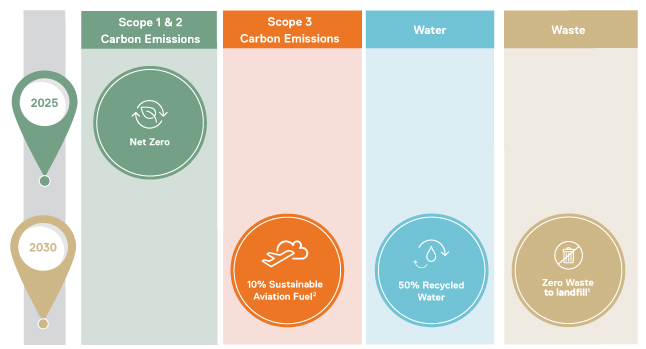
Brisbane Airport Corporation’s net-zero strategies. (C) Brisbane Airport Corporation
Commenting on the net zero strategies, Gert-Jan de Graaff, Chief Executive Officer of Brisbane Airport Corporation, said, “BNE is more than an airport. We are a sustainability leader. We want to create a world-leading Airport City that future generations can be proud of, because of how we acted today, to protect the community of tomorrow. This is not a new concept for us. We’ve been on this journey for 12 years, but now we are hitting fast-forward to reduce our impact on the planet.”
“We want passengers to know that when they’re travelling through Brisbane Airport, we are doing everything possible to ensure they are having the lightest touch on planet earth possible. As we plan for the future, our decisions are based on protecting the environment, growing responsibly, and supporting our communities.
“We know we are on a green and gold runway to the 2032 Brisbane Olympic and Paralympic Games. Without the green, there is no gold.”
Sustainability timeline
As shown in the graphic below, In 2010, Brisbane Airport allocated 285 hectares to preserve and maintain biodiversity on site. Following years, BAC achieved Australia’s first Green Star Communities rating as well as achieved (and maintained) Airport Carbon Accreditation (ACA) Level 3: Optimisation in 2016. Then, in just two years, BAC launched the operation of Queensland’s first, and Australia’s largest, electric bus fleet. The 100% electric buses operate passenger transfers between both terminals and to AIRPARK and Skygate. Swapping out the older diesel fleet for electric buses conservatively results in a reduction of approximately 350 tonnes of carbon dioxide and 200 kilograms of pollutants (oxides of nitrogen and particulate matter) each year. And today, BAC accelerated its sustainability targets.
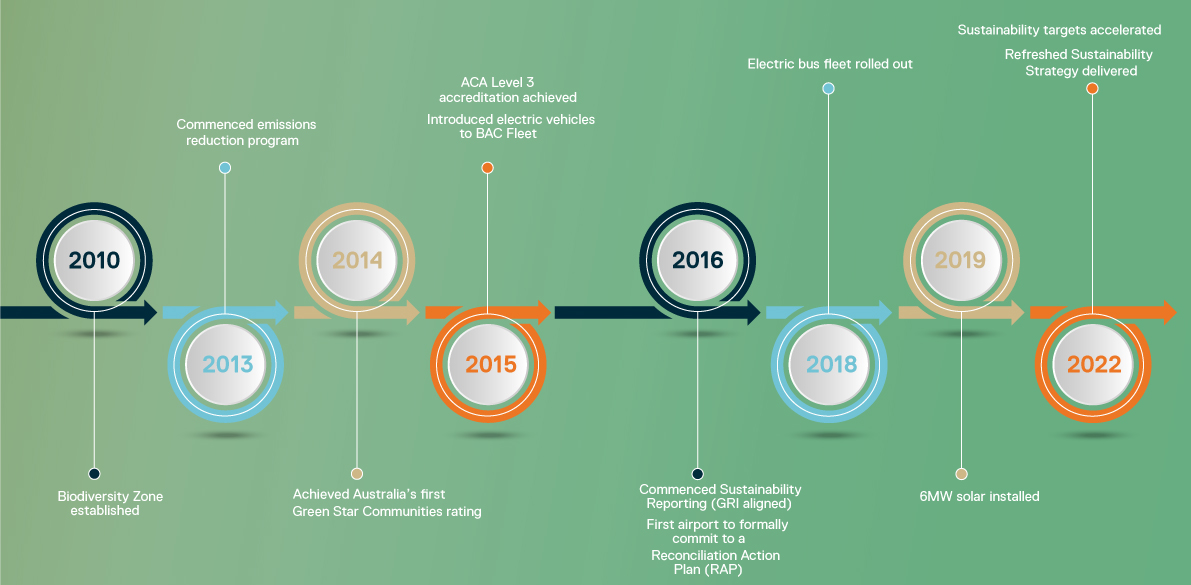
BAC’s sustainability timeline. (C) Brisbane Airport Corporation
By 2030, BAC is also committed to 50% use of recycled water, and zero waste to landfill.
Do you think other airports opt for such sustainable measures too? Leave your comments below!
**CONTENT ORIGINATED FROM TRAVELRADAR.AERO**By: Nisha ShroffTitle: Brisbane Airport Accelerates Net-Zero Target By 25 Years
Sourced From: travelradar.aero/brisbane-airport-accelerates-net-zero-target-by-25-years/?utm_source=rss&utm_medium=rss&utm_campaign=brisbane-airport-accelerates-net-zero-target-years
Published Date: Fri, 05 Aug 2022 04:49:51 +0000
Did you miss our previous article...
https://1airtravel.com/feature/alaska-airlines-commits-to-largest-saf-purchase-yet


